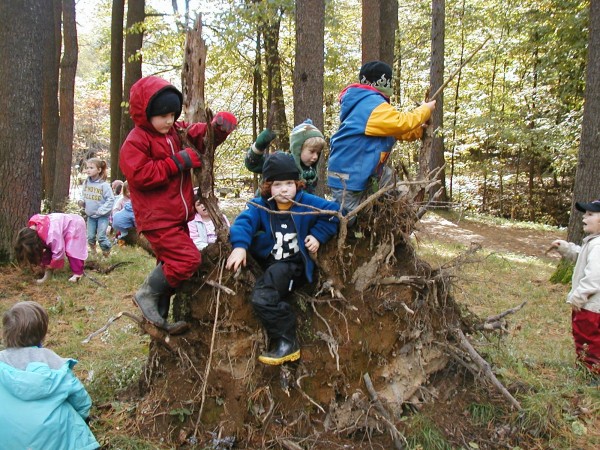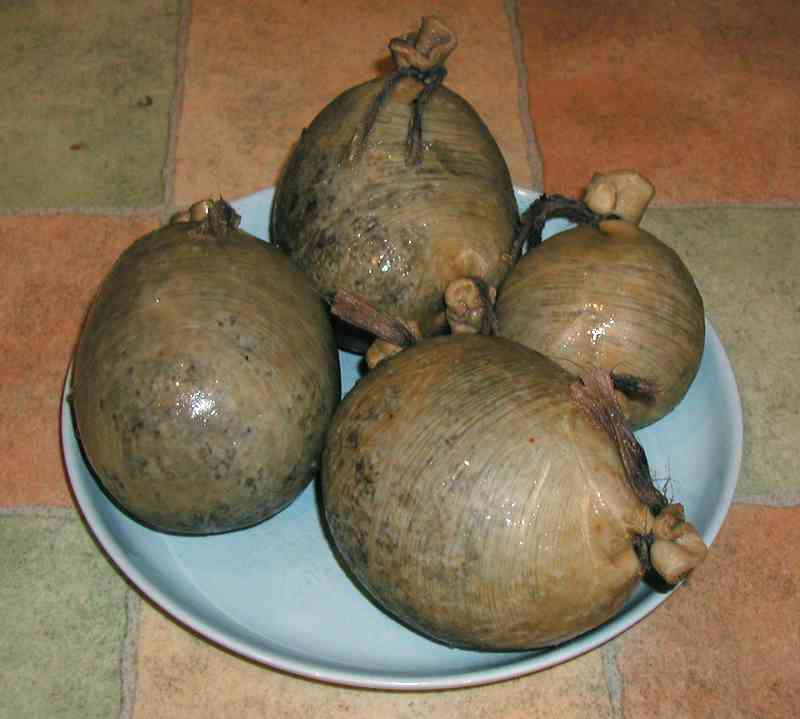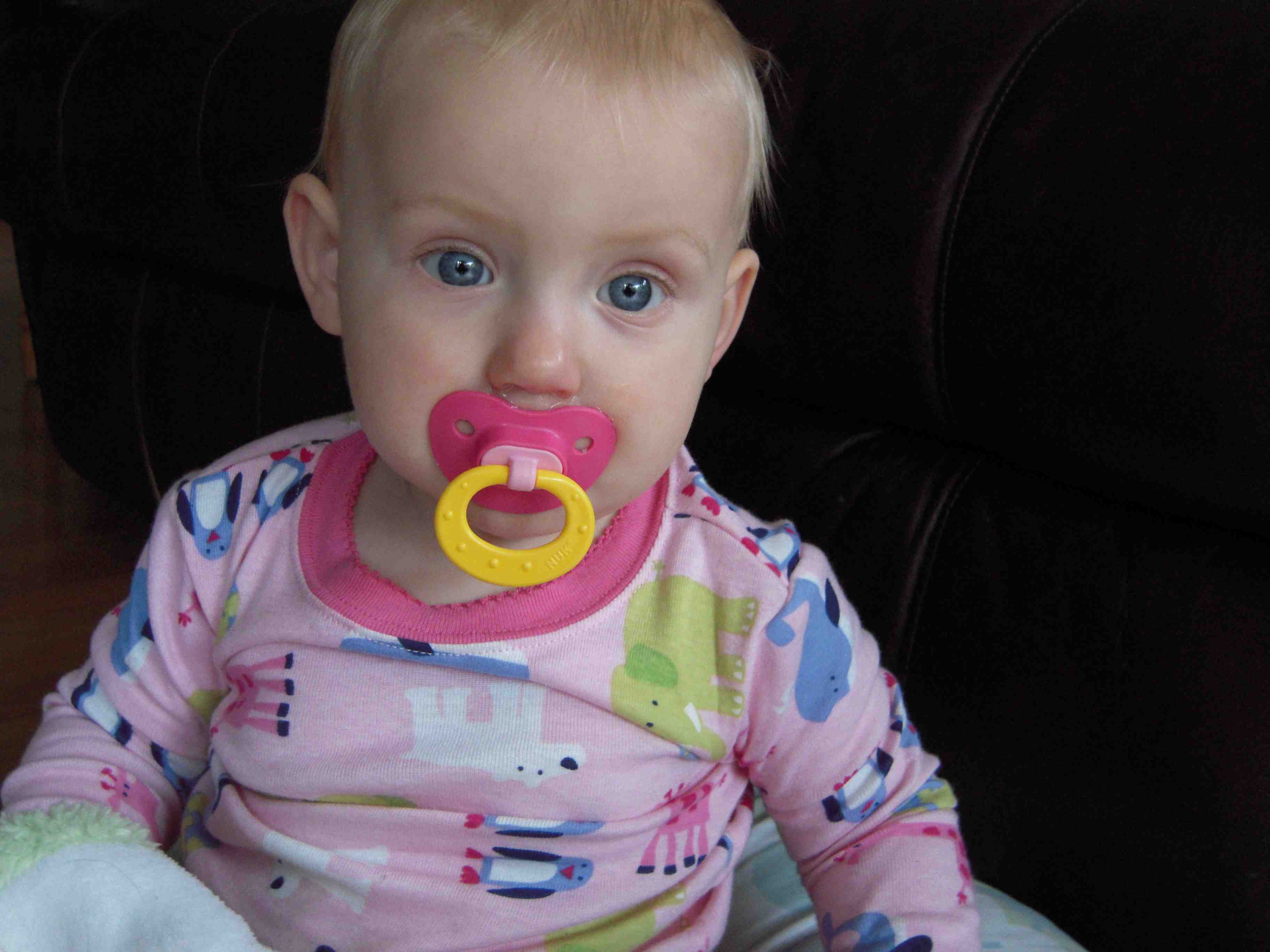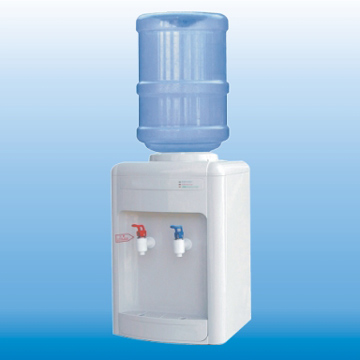An open-air nursery, or forest kindergarten, sounds sorta cool (in German, Waldkindergarten), where the kids spend their days in the woods instead of a building with walls.
 But poop could be a problem.
But poop could be a problem.
The Secret Garden Outdoor Nursery in Fife, Scotland, which operates in a woodland setting, had been ordered to use soap and water instead of wipes if staff and children visited a farm or walked across a field containing livestock.
The Scotsman reports the nursery argued that carrying up to ten litres of water into Letham Woods where the children play and learn was impractical and that the threat of catching E coli was being exaggerated.
Last night Cathy Bache, the nursery’s founder, welcomed the victory over what she described as Health Protection Scotland’s (HPS) "very unworkable" hand-washing policy, adding,
"It’s fantastic. We can now continue to operate as a nomadic nursery on our woodland site. If we’d had hand-washing imposed on us it would have made things a lot more difficult."
The potential hygiene issue came to light in July last year after concerns about handwashing were raised at an inspection by the Care Commission which regulates Scotland’s nurseries. The nursery complied with a request to use soap and water before reverting to wipes and gels last December.
A spokesman for the Care Commission, said: "The Secret Garden will now follow a ten-step programme of measures with regard to hand hygiene. The practice and procedures should also be approved by the individual parents of all children attending.
"However, we remain clear that children at the Secret Garden should wash their hands with soap and water whenever possible to maintain good infection prevention."
That’s because sanitizers do not work in the presence of organic material – dirt in a forest – and are ineffective against a number of viruses.

.jpg) into hospital after suffering complications before being discharged last night.
into hospital after suffering complications before being discharged last night. Prof Hugh Pennington, who has chaired two public inquiries into major outbreaks of E. coli O157, said he was concerned about the number of experienced personnel being lost due to budget cuts, adding,
Prof Hugh Pennington, who has chaired two public inquiries into major outbreaks of E. coli O157, said he was concerned about the number of experienced personnel being lost due to budget cuts, adding, because of concerns about the safety of British meat during the BSE or mad cow disease debacle. Haggis contains offal ingredients such as sheep lungs.
because of concerns about the safety of British meat during the BSE or mad cow disease debacle. Haggis contains offal ingredients such as sheep lungs. Jo MacSween, co-director of Macsween Haggis, said it would come as good news to expats and tourists, and that sales of haggis were no longer confined to the Burns Night season in January — the company has also diversified into products such as haggis nachos.
Jo MacSween, co-director of Macsween Haggis, said it would come as good news to expats and tourists, and that sales of haggis were no longer confined to the Burns Night season in January — the company has also diversified into products such as haggis nachos. A child in Scotland has been in hospital for six weeks
A child in Scotland has been in hospital for six weeks But, for those who work in an office, the water cooler is, I’m told, the place for gossip, flirting and bacteria.
But, for those who work in an office, the water cooler is, I’m told, the place for gossip, flirting and bacteria. Dave’s descriptor was insightful, to the point and accurate; or just really dull, I’m never quite sure which. I’m reminded of such adjectives when I find myself saying any approach to modifying food safety behavior requires a mixture of carrots and sticks.
Dave’s descriptor was insightful, to the point and accurate; or just really dull, I’m never quite sure which. I’m reminded of such adjectives when I find myself saying any approach to modifying food safety behavior requires a mixture of carrots and sticks..jpg)
 Health authorities quickly linked the outbreak to cooked meat sold by family butchers John Barr & Son in Wishaw, who had been in business for 28 years and in September was awarded the title of Scottish Butcher of the Year. … It was concluded by investigators that the contamination occurred probably because knives used to separate raw product were also being used to open packages of cooked product.”
Health authorities quickly linked the outbreak to cooked meat sold by family butchers John Barr & Son in Wishaw, who had been in business for 28 years and in September was awarded the title of Scottish Butcher of the Year. … It was concluded by investigators that the contamination occurred probably because knives used to separate raw product were also being used to open packages of cooked product.” The U.S. implemented a ban on haggis from Scotland in 1989 amidst the bovine spongiform encephalopathy [mad cow] scare because the dish contains offal ingredients such as sheep lungs. Sheep can suffer from scrapie, which is in the same family of diseases as BSE.
The U.S. implemented a ban on haggis from Scotland in 1989 amidst the bovine spongiform encephalopathy [mad cow] scare because the dish contains offal ingredients such as sheep lungs. Sheep can suffer from scrapie, which is in the same family of diseases as BSE.